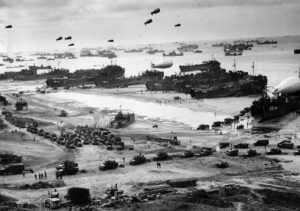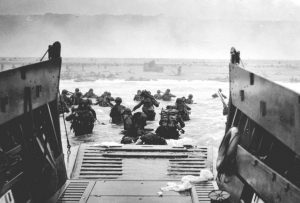 We don’t often think of generals feeling anguish over men lost in the battles they are sent to fight. It’s not that we don’t realize that they feel bad for sending these men into battle, to their possible deaths, even to their probable deaths, because we do. Still, they are the generals, and far above the rank and file…the little guys. Generals, Admirals, the President…could they even realize the consequences of their decisions in the lives of the people under them? I think most of us somehow think that the generals and even the president have no idea how many people they are condemning to death by the orders they give. In reality, nothing could be further from the truth.
We don’t often think of generals feeling anguish over men lost in the battles they are sent to fight. It’s not that we don’t realize that they feel bad for sending these men into battle, to their possible deaths, even to their probable deaths, because we do. Still, they are the generals, and far above the rank and file…the little guys. Generals, Admirals, the President…could they even realize the consequences of their decisions in the lives of the people under them? I think most of us somehow think that the generals and even the president have no idea how many people they are condemning to death by the orders they give. In reality, nothing could be further from the truth.
General Eisenhower, known as “Ike” was the one with the final say in the D-Day attack that could potentially take the lives of more than 160,000 men, as well as the possible destruction of nearly 12,000 aircraft, almost 7,000 sea vessels. The attack was supposed to take place on June 5, 1944, but the weather was not cooperative. For the attack to work, several factors had to be optimally in favor of the Allies. Nevertheless, these were factors that could not be controlled by humans. Things like the tides, the moon, and the weather. They needed low tide and bright lunar conditions, limiting the possibilities to just a few days each month. The dates for June 1944 were the fifth, the sixth, and the seventh. It was a very small window, and then the weather on the fifth didn’t cooperate either. If the attack was not launched on one  of those dates, Ike would be forced to wait until June 19 to try again. Not only did that mean more deaths because of the German occupation, but keeping the attack secret was harder, the longer they had to wait.
of those dates, Ike would be forced to wait until June 19 to try again. Not only did that mean more deaths because of the German occupation, but keeping the attack secret was harder, the longer they had to wait.
Finally, it looked like June 6, 1944 was going to cooperate. All of his advisors told him that their part was a go. Finally it was time for the final decision…one that belonged only to Eisenhower. He labored over the decision. It was not one where he could decide from his lofty position and never think about it again. He knew that he was sending men to their deaths…to certain death. He couldn’t pass the buck. He couldn’t call a dozen people to see how they felt about it. He had to decide. And so he did. History has argued what his exact words were, some said, “Ok, let ‘er rip.” or “Well, we’ll go” or “All right, we move” or “OK, boys, We will go.” or “We will attack tomorrow.” I don’t suppose it really matters what he said exactly, but rather, it mattered what happened after. We now know that the Allied casualties on June 6 have been estimated at 10,000 killed, wounded, and missing in action. Among those were 6,603 Americans, 2,700 British, and 946 Canadians. It ended with an Allied victory, but it was not without cost…the loss of lives was great. Eisenhower could not “celebrate” the anniversary of D-Day, thinking that it would be like patting himself on the back, but I think that the biggest  picture of the weight that the attack placed on Eisenhower was when he was going to a reunion with the 82nd Airborne Division. Upon seeing him, the men stood, cheering and whistling. Reporter Val Lauder had spoken to him, and later watched the news broadcast of the reunion, when her mother noticed something odd. Says Lauder, “My mother, watching with me, said, ‘He’s crying. Why is he crying?’ I said, ‘He’s looking out at a roomful of men he once thought he could be sending to their death.'” That says it all. Ike didn’t just pull the plug and send those men to their deaths…never giving it another thought. The decision haunted him for years, and quite likely the rest of his life.
picture of the weight that the attack placed on Eisenhower was when he was going to a reunion with the 82nd Airborne Division. Upon seeing him, the men stood, cheering and whistling. Reporter Val Lauder had spoken to him, and later watched the news broadcast of the reunion, when her mother noticed something odd. Says Lauder, “My mother, watching with me, said, ‘He’s crying. Why is he crying?’ I said, ‘He’s looking out at a roomful of men he once thought he could be sending to their death.'” That says it all. Ike didn’t just pull the plug and send those men to their deaths…never giving it another thought. The decision haunted him for years, and quite likely the rest of his life.


Leave a Reply